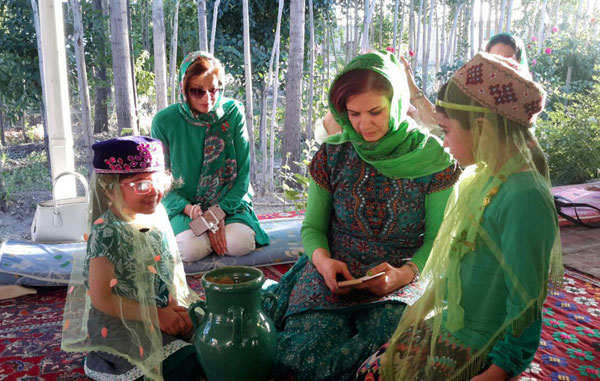Boloni used to be one of the rituals performed by Iranian people during the days when families came together to visit each other and celebrate Nowruz. The ritual, which was performed by teenage boys and girls, was overseen by one of the elder family members or a white-bearded man.
Each person attending this ritual put a part of their personal belongings that recalled their memories, such as the hairpins, the button of a shirt, part of a cloth, mirror, and so on in a clay jug called “Boloni”.
They also wrote a piece of poem by great Iranian poets, especially Hafez, Saadi, Rumi and Nezami, and threw it into the jog.
Then, one of the immature boys or girls of the family took out a piece of paper from Boloni, giving it to the person observing the ritual.
The white-bearded man read the poem written on it and interpreted it for all. The same child would bring out one of the objects inside the Boloni. The poem and its interpretation would return to the person to whom the object belonged. If the interpretation of the poem was good, it would reflect good luck for that person in the New Year. However, if the interpretation was unpleasant, it would reflect the bad omen for the person.
Of course Iranians believe the fate of each person is subject to divine judgment and providence. Therefore, the ritual was mostly for fun and entertainment. It was one of the ways that helped bring families together during the Nowruz holidays.
Boloni has been prevalent in the central plateau of Iran, especially in the provinces of Fars, Isfahan, Chaharmahal and Bakhtiari, northern Kerman and Yazd, but they were held in different ways. In Isfahan province, for example, poems written on paper were only from Hafez’s sonnets. In northern Kerman or in Yasouj there was no poem written on paper, but first the eldest family member or host of the ritual, read a piece from a book of poetry. He would interpret the sonnet, and then the immature child took out the objects from the “Boloni” jug.
